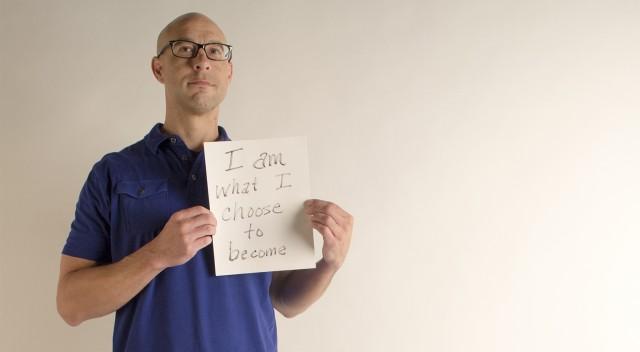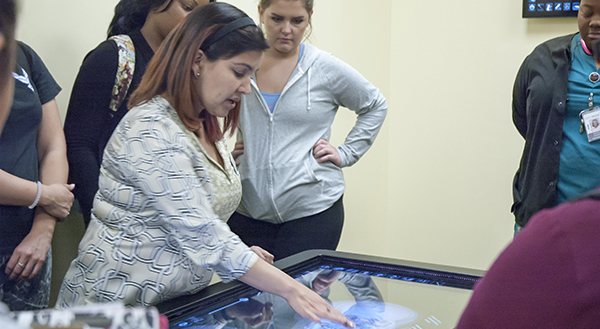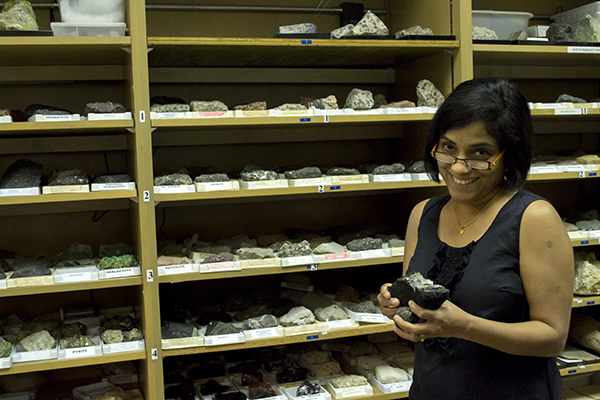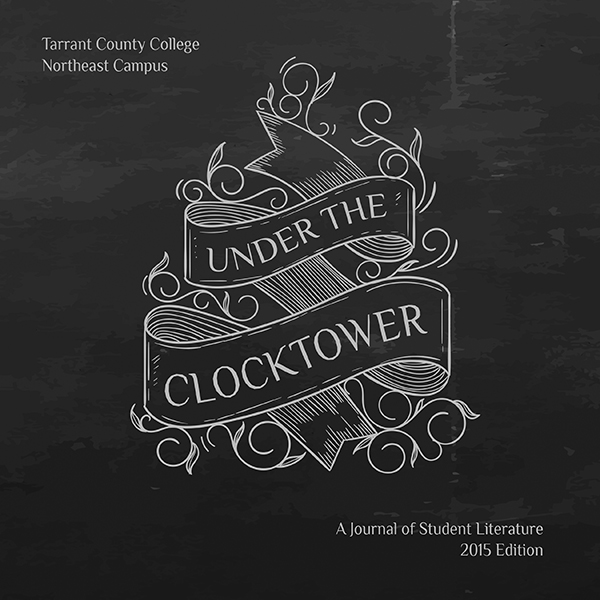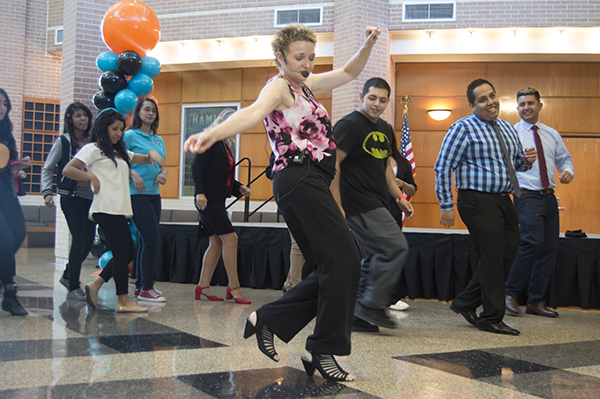By Victoria Almond/ reporter
Angel Ayala went from sleeping in the homeless shelter to thinking about a graduate degree.
The former addict and TCC student who received his Licensed Chemical Dependency Counselor certification from NE Campus is now at Tarleton State University working on his bachelor’s degree.
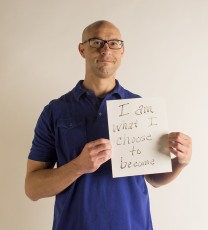
Katelyn Townsend/The Collegian
Ayala said to picture thousands of people suffering from addiction.
“I want you to pretend for a moment that they do not know about the other,” he said. “They think they are alone, much like how I thought I was alone because inside I felt I was as hollow and grimy as an old 55-gallon oil barrel sitting in the sun. When recovery has a voice, it brings people together. I want to share my experiences so others can learn from me.”
Addiction stalks people of all ages, but counselors and others believe its greatest toll falls on younger people who haven’t yet learned life skills that could help them avoid it.
“Drug abuse is self-harm when we feel disconnected,” said Cynthia Savage, NE mental health program director.
Ayala said his drug escapade began with alcohol and marijuana but ended with methamphetamines, crack cocaine and pain pills. He tried hiding his addiction from his family for years but said the consequences came and got worse over time as he often thought about taking his own life.
“After sleeping in the homeless shelter, enduring drug withdrawals, depression and isolation, I became more willing than I ever have before and finally asked my younger brother to take me to rehab,” he said.
Ayala said he encourages others to find their own truth, to try different forms of treatment and to go with the one that works best for them.
“What worked for me was inpatient treatment and a 12-step program,” he said. “I got a sponsor, took the steps and remain active in the program as a speaker, chairperson and a sponsor to others.”
For Ayala, the hardest part about rehab and sobriety was facing the fact that the problem was not the drugs and alcohol.
“The problem was me,” he said.
A part of the 12-step program, which Ayala said worked for him, was the third step that states, “Make a decision to turn our will and our lives over to the care of God as we understand him.”
“Basically that meant I needed to hand over what I was carrying,” he said. “And with this tool, I was able to hand over anything, big or small, to my higher power.”
Ayala said a good rule of thumb for the first year of recovery is to not make any major changes. Second, he said was to focus on personal development. Third was to focus on a deeper self-awareness and fourth to focus on physical health.
“Lying is a form of running, and there are two things that make up an addict — running and selfishness,” said Anthony Boydston, a mental health honor student with a 4.0 GPA who received his Associate in Applied Science.
“Making the change can be difficult after lying for a long time, but the difficulty is irrelevant,” he said. “The hardest part is the initial first step from lies to the truth.”
Boydston said his drug of choice for 12 years was heroin but used various substances for 15 years. He has been sober since Feb. 22, 2011.
“The deep-seeded shame I had in the beginning was like cancer, but I just had to work my way through it and find the strength and desire to forgive myself,” he said.
Boydston said he had to learn how to feel all over again to move forward with sobriety. He also put himself through a long, intensive rehab program known as Cenikor, where he continued his recovery.
“The hardest part was looking at myself and all the poor choices I have ever made in a realistic way,” he said. “I let go of hate and, instead, embraced compassion. It has become easier, and I am also not afraid to feel anymore.
Boydston said he extensively uses communication as a coping mechanism as well as going to live concerts, cooking, writing and encouraging others through motivational speaking.
In Boydston’s opinion, the most important thing for addicts to focus on during recovery is the desire to do something different, practice humility, follow through and keep their word.
“Learn how to be there for others,” he said. “Stop running and stop searching for an easy solution to the problem because easy solutions are a myth.”
Kimberli Bass, a student in the LCDC program and mother of five, said years of abuse ravaged her. Her drug of choice was methamphetamine. Then one day, she looked in the mirror and saw a skeleton, which prompted her to realize she needed to quit before it killed her.
Bass has been sober since June 2008, but during her years of addiction, she served a jail sentence and temporarily lost custody of her children.
“The hardest part of sobering up is recognizing the need to alter your life to make the change and believing in yourself,” she said. “Every time I thought I was doing good, my past would jump up and take a bite out of the good work and leave a mess that I could not handle behind, so I would use again to stop the pain and loneliness.”
In the beginning of her recovery, Bass said she had to spend time evaluating the kind of people she wanted in her life and learn to refuse to accept less.
“I believe you must decide to change the where, who and when factors in your life,” she said. “Without an altered route, place and people, odds are against you when it comes to overcoming addiction.”
Bass now spends her time volunteering, cooking and riding motorcycles as hobbies instead of using drugs. Volunteering always puts one with people and develops self-worth while helping others, she said.
“If I could have one superpower, I would like to be able to give people the hope and ability to believe in themselves like I have been given so I could empower them to be the person they have always dreamed of being,” she said.
NE student Karrie Dodd recently overcame the first-year struggles of sobriety. Like Bass, Dodd’s drug of choice was methamphetamine.
“I felt very ashamed of who I was and I did not want to keep seeing that person,” Dodd said. “But when I talked about my problem with others I overcame my shame by becoming a person who could hold their head up.”
Dodd said she has made it through the hardest year of sobriety — the first year.
“The first life lesson addiction taught me was to never let someone make you feel so low that you turn into someone you never want to be,” she said.
Throughout her first year of sobriety, Dodd had to recognize and understand the triggers that made her want to use the drug and make the necessary changes in her life so she could succeed.
“I think you have to focus on yourself first,” she said. “Once you do that, everything else follows but taking care of yourself first is the most important.”
Samantha Richmon, another LCDC student, never had a drug or alcohol problem herself, but when she was 7, she lost her mother to a drug overdose.
“Even though I myself was not an addict, I was deeply affected by someone who was,” she said. “My mom’s addiction took her life. I want to be able to help those in anyway that I can.”
Richmon’s version of recovery includes writing to let out pent-up emotions of the past and talking to others.
“I was very surprised that it truly does help to talk to someone and to get out all the built-up emotions that have been there for many years,” she said. “If my mother knew the resources that were there, I want to believe she would have used them and could still be here with us today.
“If you’re just now starting to recover, remember: It gets easier. You are worth the process.”

























